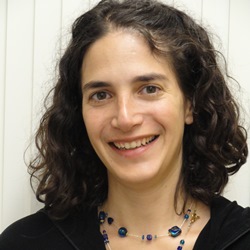
About
Laura Schulz received the Troland Research Award from the National Academy of Sciences in 2012, the MacVicar Faculty Fellowship at MIT in 2013, and the American Psychological Association Distinguished Scientific Award for Early Career Contribution to Psychology in 2014. She has a Ph.D. in Developmental Psychology from the University of California, Berkeley and a B.A. in Philosophy from University of Michigan.
Research
The infrastructure of human cognition -- our commonsense understanding of the physical and social world -- is constructed during early childhood. I study the representations and learning mechanisms that underlie this feat. My research looks at 1) how children infer the concepts and causal relations that enable them to engage in accurate prediction, explanation, and intervention; 2) the factors that support curiosity and exploration, allowing children to engage in effective discovery and 3) how the social-communicative context (e.g., demonstrating evidence, explaining events, disagreeing about hypotheses) affects children’s learning.
Computational models of human cognition, in particular work on hierarchical Bayesian inference models, inform much of the research in the lab. I have been especially interested in understanding trade-offs in the inferential process, such that the same inductive biases that constrain the hypothesis space and allow us to draw rich inferences from sparse data can also make it difficult for us to revise our beliefs. This paradox poses a challenge for educators but also provides insight into the factors that might promote effective learning and teaching.
Most of the research in the lab involves babies and children. Since babies and children have limited prior knowledge and no formal training, understanding how children reason about the world can give us insight into the origins of knowledge and fundamental principles of learning. We have on-site laboratories at the Boston Children’s Museum and the Discovery Center at the Museum of Science, Boston and use a variety of approaches, ranging from infant-looking time methods to free-play paradigms in our studies.
Teaching
9.85 Infant and early childhood cognition
This is a communication intensive course on cognitive development. We will treat developmental psychology as “applied philosophy”—a way to answer fundamental questions about the origins and nature of knowledge. You should expect to gain an understanding of the questions that motivate developmental research and the methods that can answer these questions. We will focus on how children acquire commonsense knowledge about the world, focusing particularly on their understanding of objects (shoes, ships and sealing wax), agents (you, me, and sometimes fuzzy green blobs) and causality (the relations that bind these together). We will examine the evidence for innate representations and also look at the processes that underlie learning and conceptual change. The course is structured around primary sources, not a textbook. Most days, you will read one brief review article and one or two empirical articles.
9.41 Research and Communication in Neuroscience and Cognitive Science
9.S52 Project-based seminar in infant and early childhood cognition
9.S912 Special Subjects Brain and Cognitive Sciences- Graduate Writing Seminar
Publications
Leonard, J.A., Lee, Y., & Schulz, L.E. (2017). Infants make more attempts to achieve a goal when they see adults persist. Science, 357(6357), 1290-1294.
Wu, Y., Muentener, P., & Schulz, L.E. (2017). One- to four-year-olds connect diverse positive emotional vocalizations to their probable causes. Proceedings of the National Academy of Sciences, 114(45), 11896-11901.
Schulz, L. (2012) The origins of inquiry: Inductive inference and exploration in early childhood. Trends in Cognitive Sciences, 16, 382-389.
Gweon, H., & Schulz, L. E. (2011). 16-month-olds rationally infer causes of failed actions. Science, 332(6037), 1524.
Gweon, H., Tenenbaum, J., & Schulz, L. E. (2010). Infants consider both the sample and the sampling process in inductive generalization. Proceedings of the National Academy of Sciences, 107(20), 9066-9071.

